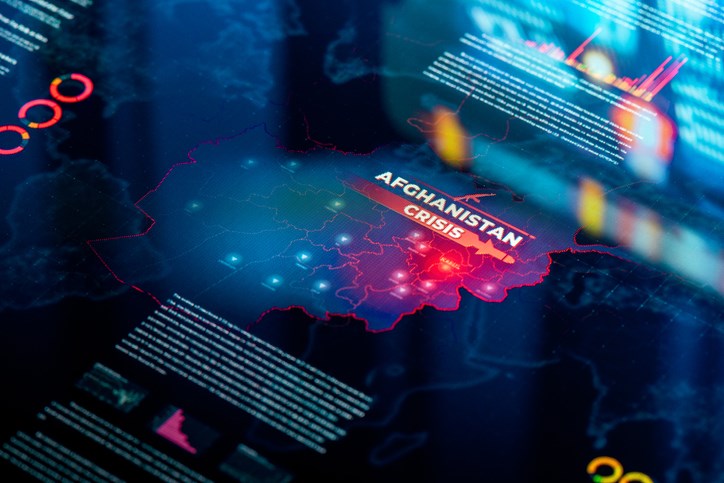Kabul was overtaken on Aug. 15, and now that Afghanistan is controlled by the Taliban, we start seeing some chaos coming back to that country.
I don’t think Washington expected things to change so fast, but now it seems that the fragile progress achieved in the country, which has been torn apart by conflicts for as long as we can remember, might be lost. In general, it wasn’t an unexpected scenario, especially for those Afghans who urged NATO not to leave.
I guess the expectation was that even when the American troops depart the country, NATO would still provide air support to the Afghan government. But de-facto, that support was almost instantly cut as well, opening all ways for the Taliban. With no proper mechanisms created to force the Talibs to stick to achieved agreements, now women, civil activists and youths are under threat.
The country is taken by the military organization, and there is no way back. However, what the future of Afghanistan and the region will look like is not so clear yet.
Even though the Taliban promised to improve life for Afghanistan citizens and to look into women’s rights matters, thousands of people are trying to leave the country in any possible way and as soon as they can. The Taliban guaranteed safety for President Ashraf Ghani’s government and security for the international diplomats, and many experts point out that so far the occupants have been acting very civilized, especially keeping in mind previous experiences and the fact that the Taliban is not just Talibs.
They work together with other jihadist groups such as al-Qaeda and others, and the methods popular among them, when it comes to war, are far from humane. However, so far none of that came into play.
Talibs currently are talking about the transfer of power, temporary government and some kind of compromise between Islamic and secular states. Nevertheless, the U.S., Canada and other countries are evacuating embassy staff and their citizens, along with some vulnerable Afghans for whom soon it may be too late. While some experts talk about demonizing the Taliban, which as of yet has been choosing more peaceful ways, it's easy to believe that people on the ground have a better understanding of what's coming.
The Taliban had been in power in Afghanistan from 1996-2001 with a punitive form of Islamic law, and many people are afraid of the return of those times. Lately, CBC posted a story about women judges, who had successful careers in a secular state and who would most likely be executed without a trial if or when the Taliban identifies them.
While many, including the people of Afghanistan, believe that this time things will play out better, with new realities, technologies and potential ambitions, the Islamic emirate, if it’s formed in Taliban-controlled Afghanistan, may bring in even worse realities.
What we see happening in Afghanistan is on the one hand a complete failure of global diplomacy, and on the other, what potentially may turn into the biggest tragedy of our times.
Experts believe that in a Taliban-controlled state, there will be no room for western values such as mass education or women’s rights. And while for some time they may keep some of the democratic initiatives, other things probably will be erased as soon as the new constitution is formed.
Outside of the changes that are happening and are coming to the country itself, the success of the operation looks like a great advertisement of jihadism across the world.
Jihadists overthrew the superpower, which may inspire many of their henchmen around the world. Unlike ISIS, the Taliban doesn’t urge their followers to move to Afghanistan. They rather suggest local jihad.
Experts assume that the Taliban will soon turn into an umbrella organization, with people from other jihadist groups, as well as new followers, joining them. The Taliban’s power will grow, allowing for more control and further settlement in the country and outside of it.
And that won’t bring anything good for regular people. Their country is currently under the control of a military organization, which, as their actions at the battlefields reminded, don't stick to their words too often. They are masters of information campaigns, and at this point, many people might be still hoping for the best, however political experts don’t believe that there might be any decent outcome. Once the harsh form of Islamic law settles once again, the citizens are most likely to see a wave of reprisals and ethnic cleansings.
On the other hand, the U.S. must have somewhat foreseen all these, and it's hard to believe that they would just withdraw from Afghanistan, understanding the global havoc it would result, without a plan B in mind.
But at this point, the time will show which way Afghanistan is moving. And seems that it will happen pretty quickly.




